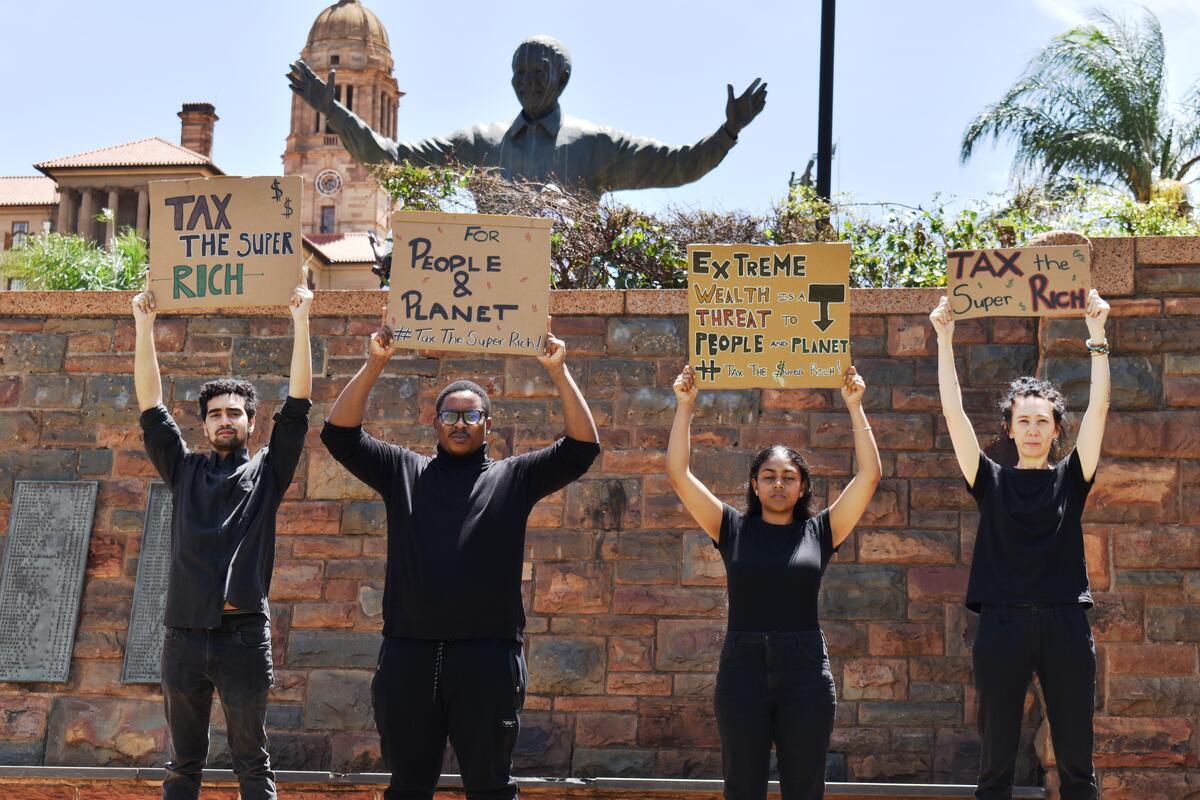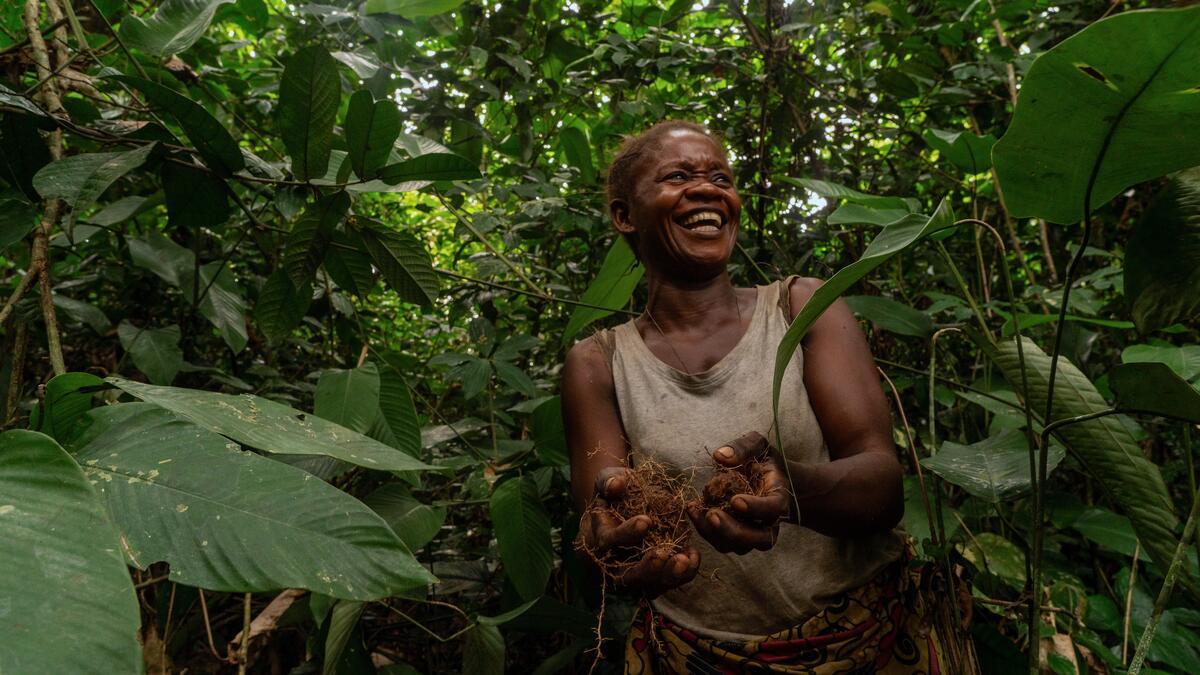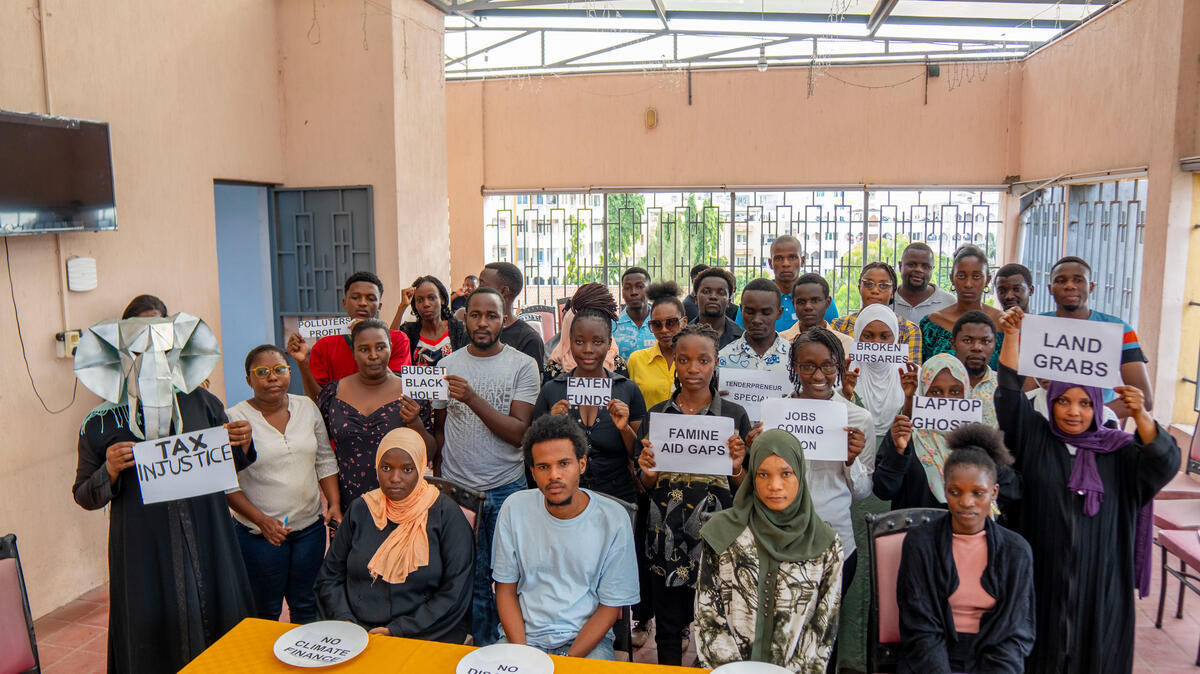
Dr. Oulie Keita
Greenpeace Africa Executive Director
Africa is not at COP30 to plead, but to lead. From forest defenders to youth innovators, the continent carries solutions the world can no longer afford to ignore.
In the village of Lokolama, deep within the forests of the Democratic Republic of Congo, the soil itself breathes. Beneath centuries-old trees lies one of the planet’s largest peatlands, a vast underground vault of carbon that has silently protected the Earth’s climate for millennia. If these forests fall, the world’s stability falters. Yet the people who have safeguarded them for generations still fight to secure the most basic right of all: the right to their land.
As the world gathers in Belém, Brazil, for COP30, Africa arrives not as a spectator but as a voice of urgency and resolve. Across the continent, floods, droughts, rising seas, and hunger are destroying lives, yet Africa contributes less than 4 percent of global emissions. This is not just another summit; it is a test of whether the world will finally deliver climate justice or continue to trade promises for platitudes.
For Africa, COP30 is more than a diplomatic milestone. It is a defining political moment. The continent has endured decades of environmental injustice and broken climate-finance pledges. Yet in the face of crisis, Africans have shown what leadership looks like through community-driven solutions, youth innovation, and local resilience. The world cannot claim progress on climate while Africa still pays the highest price.
The Congo Basin: Africa’s beating green heart
The Congo Basin, the world’s second-largest rainforest, is Africa’s shield against climate collapse. It regulates rainfall, stores carbon, and sustains more than 80 million people. Yet it remains under threat from fossil-fuel expansion, industrial agriculture, and illegal logging.
From the DRC to Cameroon, Indigenous Peoples and local communities are standing up to defend what remains of the planet’s green lung. They are demanding direct access to climate finance, bypassing bureaucracies that have long excluded them. Their call is simple and just: fund those who protect the forests, not those who destroy them.
At the First Global Congress of Forest-Basin Indigenous Peoples and Local Communities in Brazzaville, these frontline defenders made their vision clear. They want a future where local stewardship drives global survival. Greenpeace Africa stands with them.
A just transition for Africa
Africa’s transition to clean energy must be just, inclusive, and fully financed. The UAE Consensus at COP28 promised to triple renewable energy and double efficiency by 2030, but without affordable and grant-based financing, these remain empty words.
The science is clear, and so is the injustice. Africa holds 60 percent of the world’s best solar potential, yet receives less than 12 percent of global climate finance, most of it in loans. The continent is being asked to leap into a green future with empty hands and rising debt.
A real transition means no new fossil-fuel projects and replacing extraction with innovation. From Kenya’s 90 percent renewable grid to Senegal’s community solar farms, Africa is already proving that a clean-energy future is possible if global finance finally serves people, not polluters.
From Baku to Belém: a turning point for forest justice
We call on the Brazilian COP30 Presidency to ensure that this becomes the COP of the forests, not just for the Amazon but for all tropical basins. The Congo, the Amazon, and the Southeast Asian forests are not separate struggles. They are one planetary system and must be defended as such.
The Baku-to-Belém roadmap must deliver more than speeches. It must deliver finance that reaches communities, policies that protect ecosystems, and commitments that hold polluters accountable.
We also call on African governments and negotiators to stand united. Africa’s position must be clear: no climate justice without fair finance, forest protection, and community-led decision-making. The time for diplomatic restraint has passed.
A defining moment for Africa and the world
What happens in Belém will echo across every rainforest on Earth. For the Congo Basin, this is a golden opportunity to reshape how the world values Africa’s natural heritage, not as a carbon sink to be traded but as a living system central to humanity’s survival.
From the Congo to the Amazon, our destinies are intertwined. The decisions made in Belém will determine whether the world chooses justice or hypocrisy, action or apathy.
Africa’s message is clear. We are not asking for charity. We are demanding fairness. The time has come to replace rhetoric with responsibility. The planet cannot be saved unless Africa is heard, respected, and resourced.



